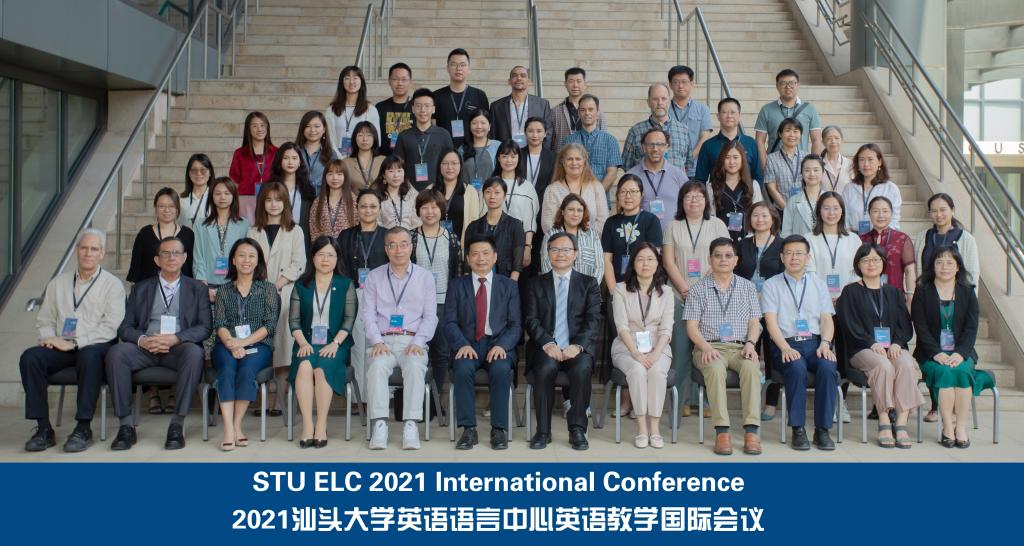The English Language Center (ELC) of the College of Liberal Arts, Shantou University (STU) successfully held the 10th edition of its Biennial ELT International Conference between April 24-25, 2021 in the Academic House, STU. The theme for the conference was Converging & Diverging Paths: ELT in a Changing Environment. Sponsored by both Shantou University and the Li Ka Shing Foundation, the conference was held both online and on-site, with hundreds of participants from Greater China and many other countries such as Australia, Brazil, Canada, Cuba, the Czech Republic, India, Indonesia, Malaysia, Mexico, Poland, Singapore, Thailand, Turkey, the United Kingdom as well as the United States of America.
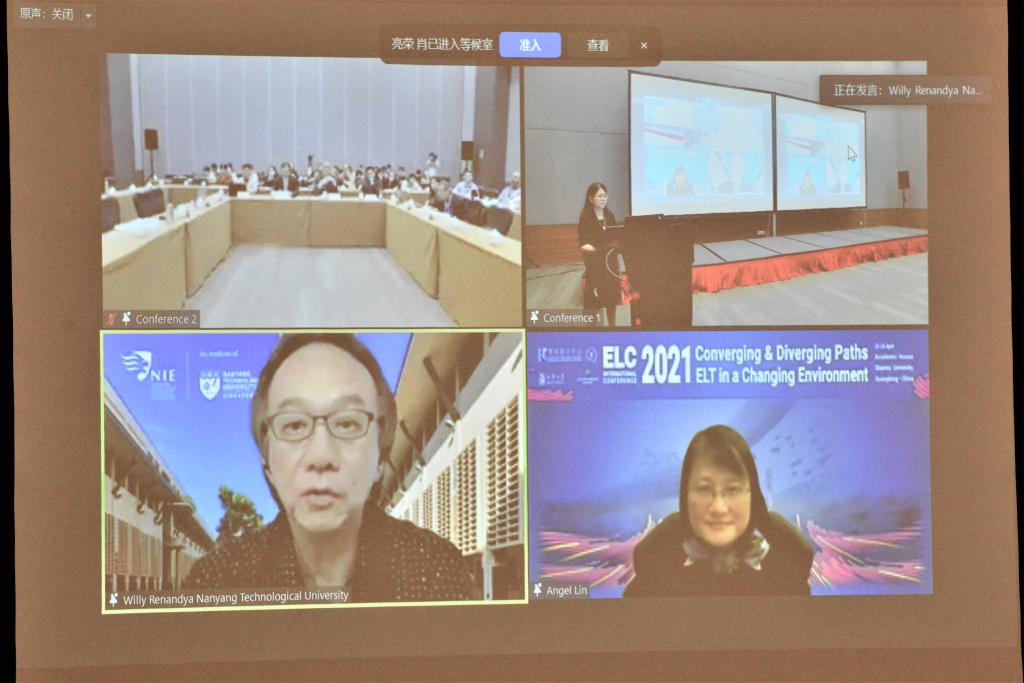
A team of leading scholars from the international TESOL research community delivered their keynote and plenary speeches at the conference. They are Professor Xuesong (Andy) GAO from the University of New South Wales (Australia), Professor LI Daguo from the University of Reading (UK), Professor Angel LIN from Simon Fraser University (Canada), Professor LIU Jianda from Guangdong University of Foreign Studies (China), Professor PENG Jian-e from Shantou University (China), Professor Willy RENANDYA from Nanyang Technological University (Singapore), and Professor WANG Haixiao from Nanjing University (China). In addition, the conference program included more than 40 paper presentations, workshops, panel discussions, and posters, covering a broad array of topics such as ELT curriculum design, ELT methods and pedagogy, content and language integrated learning, ELT and global competence, technology-enhanced ELT, learner needs and motivation, language testing and assessment, ELT and critical literacies, ELT teacher education, and ELT and translation.
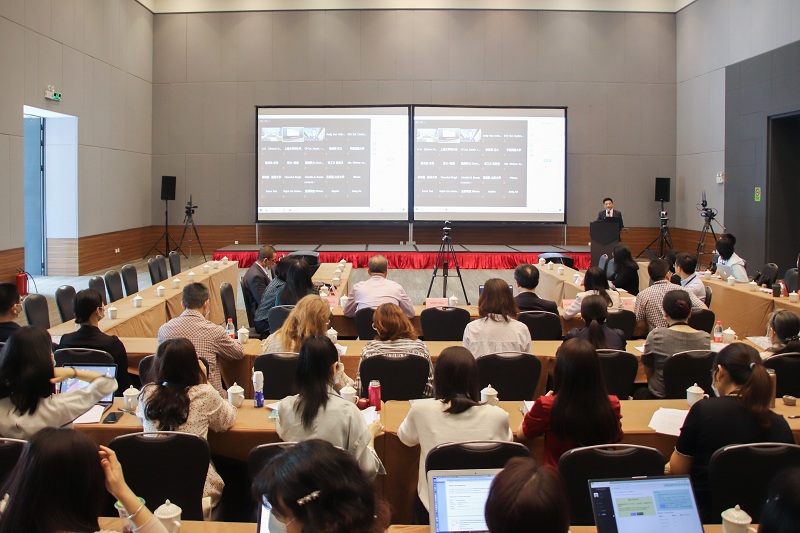
On the morning of April 24, 2021, Professor Manuel LEON, Associate Director of ELC chaired the opening ceremony, and Professor MAO Sihui, Dean of College of Liberal Arts and Director of ELC delivered his welcome speech, briefly introduced the history of the biennial ELC International Conference, stressed the benefits that this academic forum had brought to the field of ELT, and wished it would continue to serve as a great platform for ELT professionals and scholars to demonstrate best practices, display original researches, promote new theories, and exchange creative ideas. Professor MAO also introduced the teaching innovations of ELC to the conference participants with a short video. Then, Professor Angel M.Y. LIN delivered a keynote address, elaborating on an innovative teaching approach ‘Concept + Language Mapping’ (CLM) and its implications for content-based language education. Professor Andy GAO followed up with his plenary talk. Drawing on the Douglas Fir Framework, he developed a roadmap for language teachers to see how they might grow into professionals in specific contexts and how teacher educators can develop language teachers who are committed to social justice and equity in teaching. At last, in her plenary talk, Professor PENG Jian-E reported on a project that explored L2 WTC as embedded in multimodal discourse in university EFL classrooms in China. Based on the research findings, she suggested language practitioners to “recognize and orchestrate multimodal semiotic resources to enhance students’ WTC and classroom participation.”
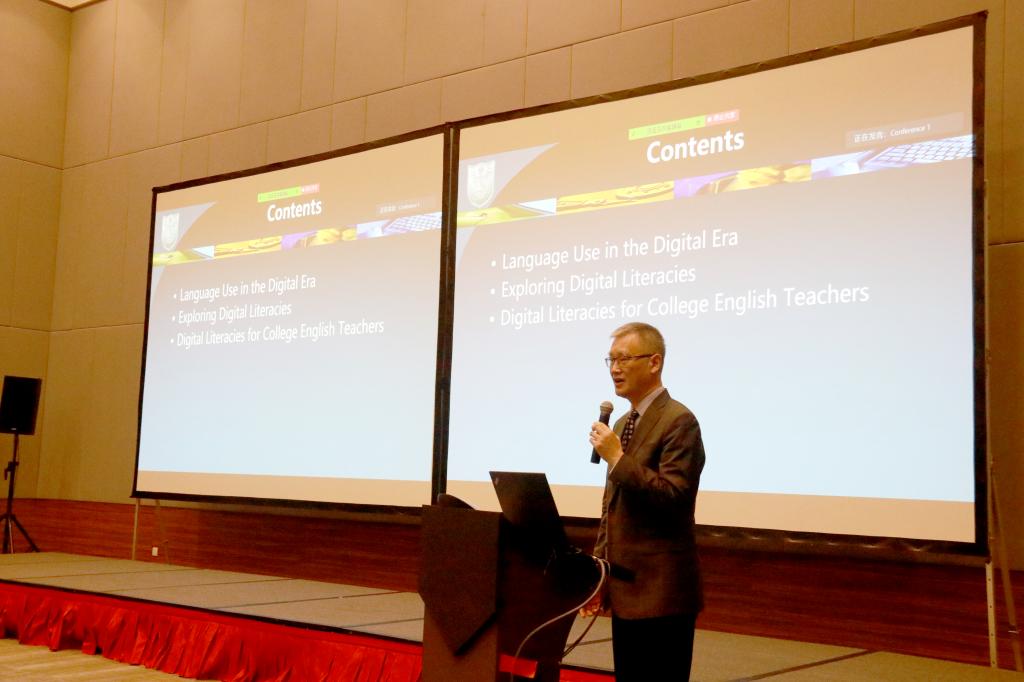
The afternoon of April 24, 2021 started with the parallel sessions. Within 2 hours and 40 minutes, in different interest groups, more than 40 presenters and hundreds of participants exchanged ideas on a wide array of topics such as blended language learning or flipped learning in ELT, task-based learning in ELT, effectiveness of corrective feedback, teacher identity and teacher professional development, teaching English for specific purposes, data-driven vocabulary learning or computer-assisted English writing, cultivation of students’ willingness to communicate in a second language, development of intercultural communication competence, learner autonomy, teaching and learning motivations, and translanguaging. After the parallel sessions, Professor LI Daguo gave a plenary speech, introduced a comparative study of TEEP (Test of English for Educational Purposes) developed by the Assessment Unit at the University of Reading (UK) and IELTS in a transnational education (TNE) context.
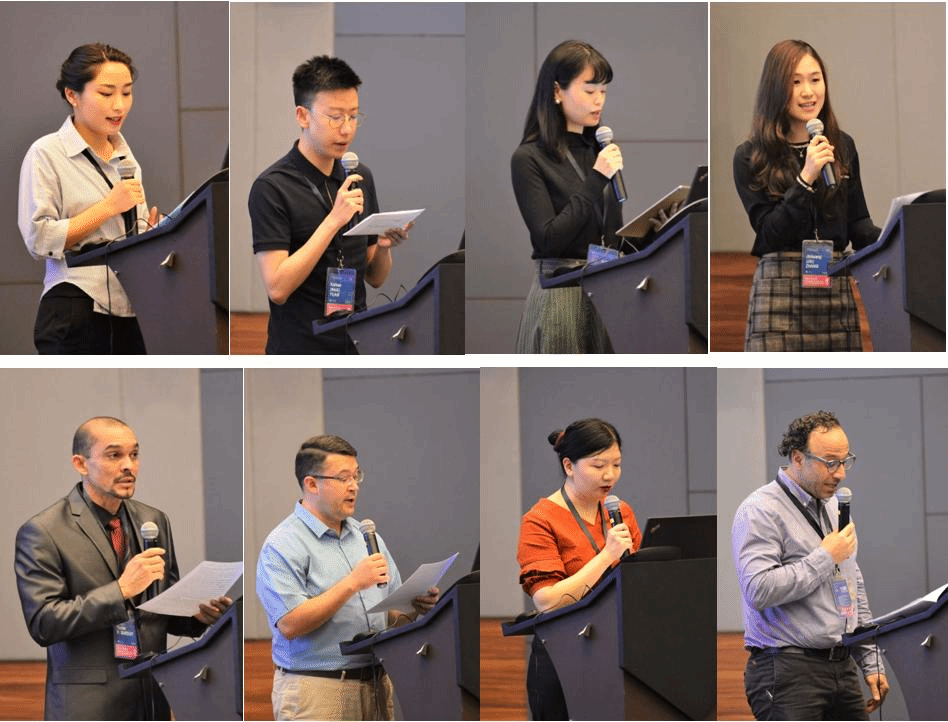
The morning of April 25, 2021 started with Professor LIU Jianda’s keynote address about changes that had been implemented in foreign language learning, teaching and assessment, with a focus on the development of China’s Standards of English Language Ability (CSE). He also reviewed the practices of formative assessment in English language learning and teaching in tertiary universities in China and suggested how CSE could be applied to the practice of formative assessment in College English learning and teaching in China. After that, Professor Willy A. RENANDYA discussed eight researched-based ELT principles in his plenary speech. Professor RENANDYA used the acronym FLAMINGOS (F = Fluency, L = Lexis, A = Amount and intensity of instruction, M = Motivation, IN = Input, G = Grammar, O = Output and S = Set expressions) to help the audience remember them and offered practical suggestions on how such principles can be applied in diverse L2 teaching contexts. Then, Professor WANG Haixiao gave a keynote address on the core components of digital literacies for College English teachers, based on the requirements of the national Guidelines on College English Teaching (GCET) as well as research findings in the related fields. At last came the closing session chaired by Professor Mao Sihui. Eight ELC teachers (LOU Yanqi, YUAN Kaihao, HE Yuanyue、ZHANG Jinhuang, Yunier P. SARDUY, Brandon David CASTREJON, Julia NG Siu Xian and Eyup KARACA) briefly reportedon the highlights of the parallel sessions on the afternoon of 24th., and then Professor Manuel LEON made a summary of the conference before it is officially closed.
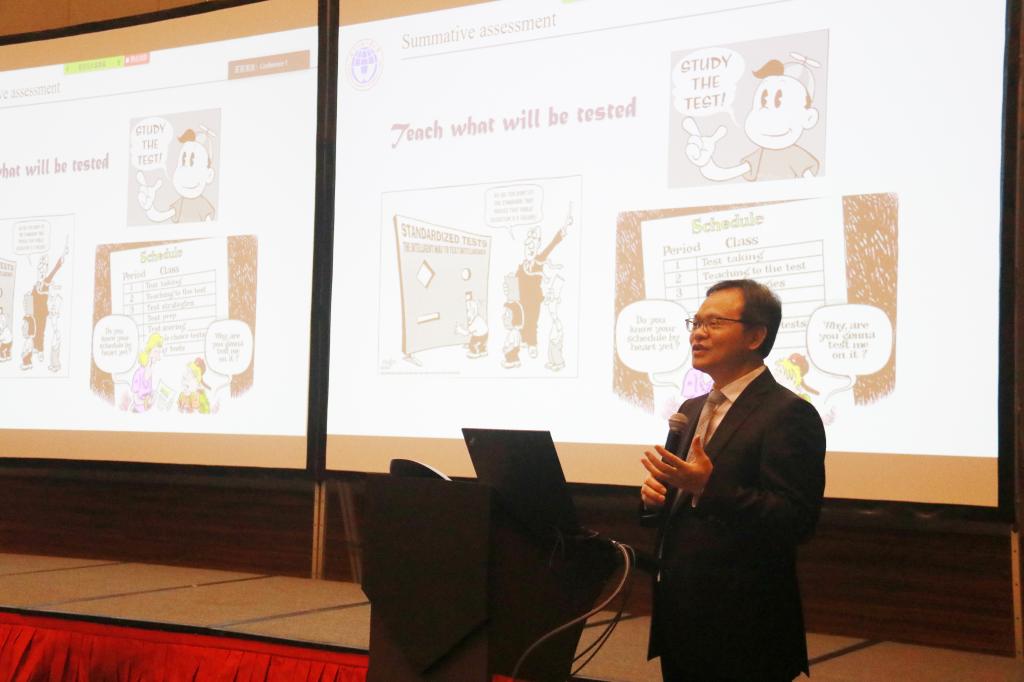
Participants of the conference were pleased to have the opportunity to interact with leading scholars of the field, learn about the latest research findings or innovative practices, and exchange ideas with scholars from various contexts. Converging and diverging paths we take, we are oriented to better English language teaching and research.
